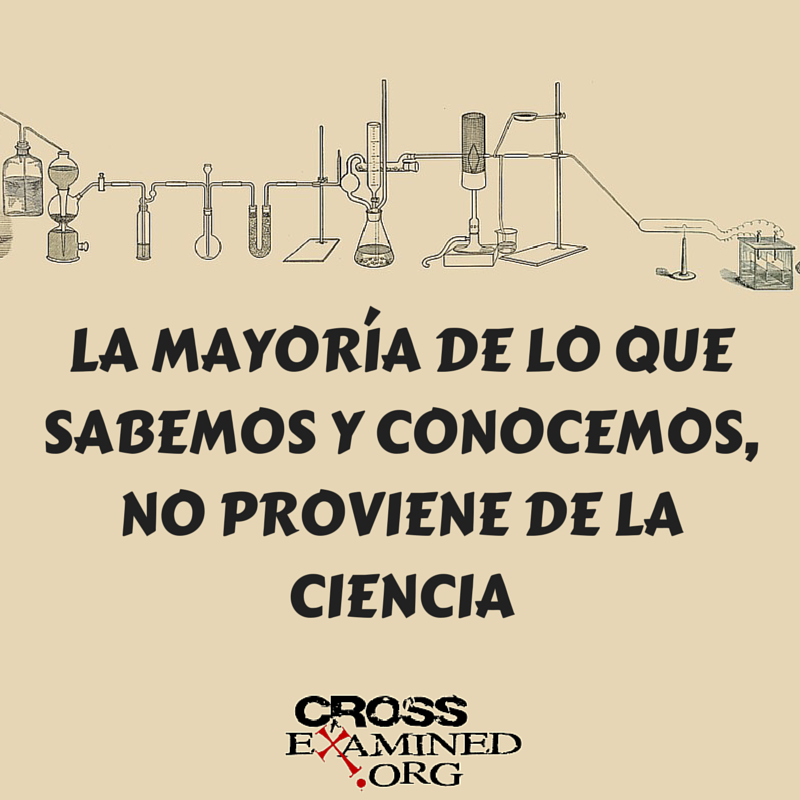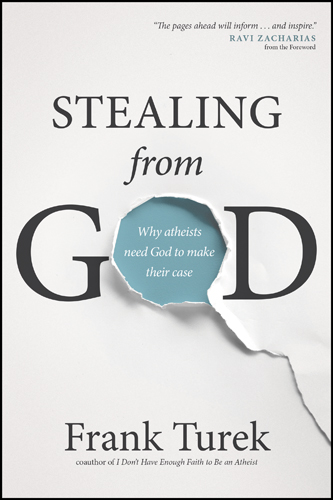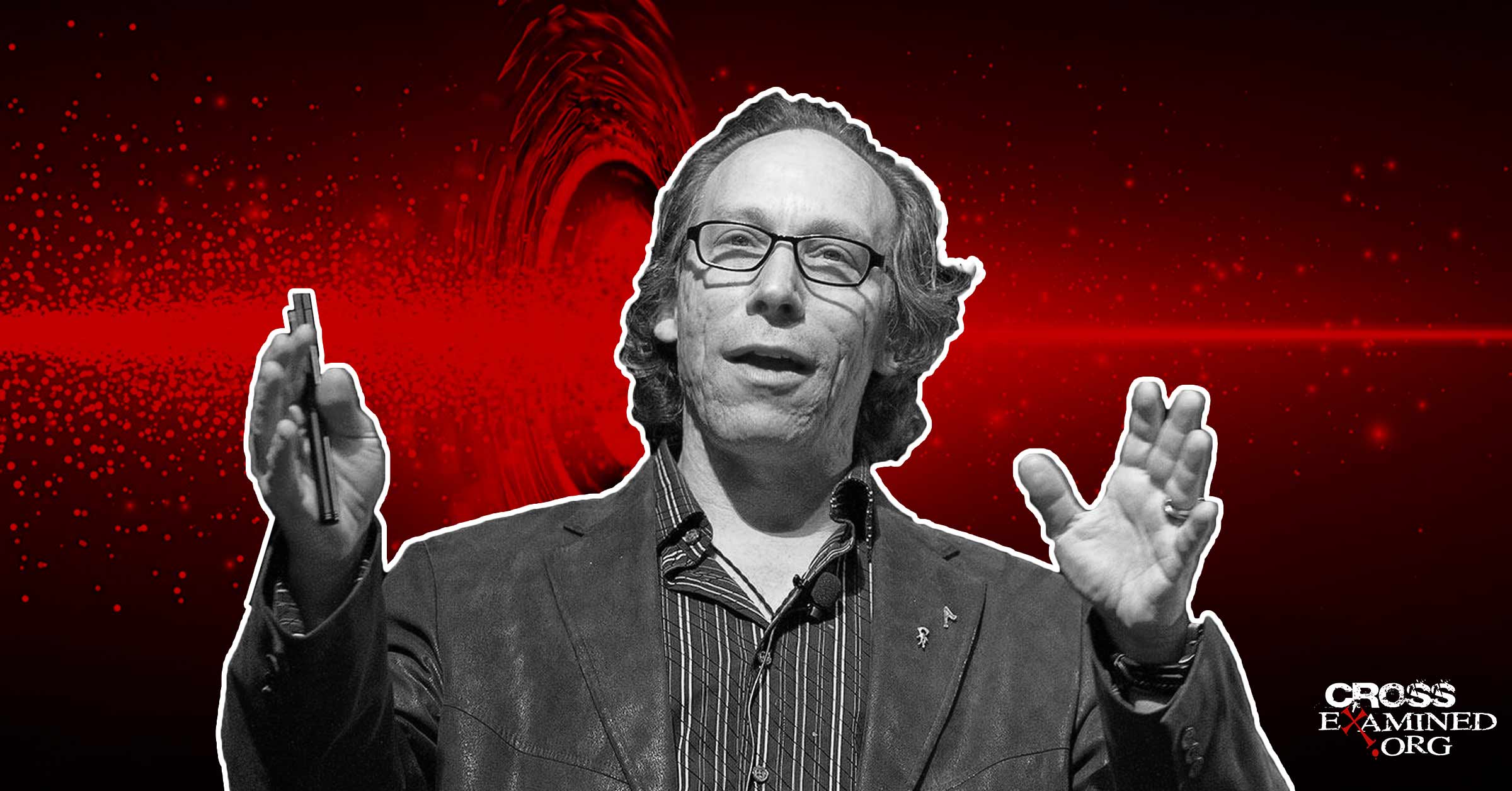El ateo Richard Dawkins ha declarado: “El universo que observamos tiene precisamente las características que deberíamos esperar pues al final no hay diseño, propósito, bien o mal. Nada más que una dura y despiadada indiferencia…el ADN no sabe ni le importa. El ADN simplemente está, y nosotros bailamos al compás de su melodía.
Pero Dawkins no actúa como si realmente creyera eso. Él ha afirmado recientemente que una mujer tiene el derecho a escoger el aborto, y consideró que sería ‘inmoral’ traer al mundo a un bebé con Síndrome de Down. Según Dawkins, el ‘derecho a escoger’ es algo bueno mientras que dar a luz a un niño con Síndrome de Down algo malo.
Entonces, ¿cómo funciona? ¿Existe realmente el bien y el mal, o somos solamente autómatas bailando al compás de nuestro ADN?
Ateos como Dawkins son fervientes defensores del derecho al aborto, el matrimonio homosexual, la asistencia médica y social, el uso de anticonceptivos, y otros más. Pero, ¿quién define que esos son realmente derechos? ¿Bajo qué estándar objetivo son el aborto, el matrimonio homosexual, la adopción por padres homosexuales y la asistencia médica y social derechos morales? No existe tal estándar en el universo materialista del ateísmo. Por lo tanto, los ateos deben robar las bases de los derechos moralmente objetivos dados por Dios mientras argumentan en contra de su existencia.
Ahora bien, no estoy diciendo que debas creer en Dios para ser una buena persona o que los ateos son personas inmorales. Incluso algunos ateos viven vidas más morales que muchos cristianos. Tampoco estoy diciendo que los ateos no sepan qué es la moralidad. Cualquiera tiene un concepto básico del bien y el mal sin importar si creen o no en Dios. De hecho, esto es justamente lo que la Biblia nos enseña (lee Romanos 2:14-15).
A lo que me refiero es que los ateos no tienen cómo justificar la moralidad. Frecuentemente confunden el saber qué es bueno con el justificar por qué es bueno. Ellos dicen que es bueno amar. Estoy de acuerdo, pero ¿por qué es bueno amar? ¿Por qué deberíamos hacerlo? El asunto no es cómo saber qué es Bueno, sino saber por qué existe un estándar confiable de Rectitud en primer lugar.
Puedes llegar a conocer la moralidad objetiva a través de diversas formas: tus padres, los maestros, la sociedad, tu conciencia, etc. Y puedes llegar a conocerla mientras niegas que Dios existe. Pero esto sería como decir que puedes conocer el contenido de un libro mientras niegas que este tiene un autor. ¡Claro que puedes hacerlo, pero no habría libro si no existiera un autor! En otras palabras, los ateos pueden llegar a conocer la moralidad objetiva mientras niegan que Dios existe, pero esta no existiría a menos que Dios si exista.
Si lo único que existe es lo material, lo cual es el argumento del ateísmo, entonces no existe tal cosa como una ley moral que sea inmaterial. Por lo tanto, los ateos deben robar un estándar moral para que su sistema materialista pueda funcionar, ya sea por un estado de bienestar absoluto, la Regla de Oro, hacer lo que “es mejor para la mayoría”, etc. Estos estándares no existen en un universo materialista en donde las creaturas bailan al compás de su ADN.
Los ateos se ven atrapados en un dilema. Si Dios no existe todo se reduce a opiniones personales, donde no existen los derechos moralmente objetivos, incluyendo todos aquellos que los ateos apoyan. Si Dios existe entonces existen los derechos moralmente objetivos. Pero claro, estos no incluyen matar bebés mientras se encuentran en el vientre, el matrimonio homosexual, y los muchos otros que han inventado, los cuales son contrarios a la mayoría de religiones y leyes naturales.
Ahora bien, un ateo podría decir: “En mi país tenemos una constitución que la mayoría aprobó. No necesitamos recurrir a Dios”. Esto es cierto, no tienes por qué avocarte con Dios para escribir leyes, pero si tienes que recurrir a Él si quieres que estas estén fundamentadas en algo más que opiniones humanas. De lo contrario, tus “derechos” sólo son preferencias que pueden ser derogadas en las urnas de votación o según el capricho de algún juez activista o dictador. Es por esto que nuestra Declaración de Independencia fundamenta nuestros derechos en el Creador. Esta reconoce el hecho que sí alguien llega a cambiar la constitución, tu seguirás gozando de algunos derechos pues estos provienen de Dios, no son invenciones humanas.
Sin embargo, mi punto no es cómo podríamos establecer los derechos objetivos, dados por Dios, dentro de las leyes humanas. Mi punto es que sin Dios no hay derechos humanos objetivos. No existe el derecho al aborto ni al matrimonio homosexual. ¡Claro, sin Dios tampoco hay derecho a la vida ni al matrimonio natural!
En otras palabras, no importa en qué postura política te encuentres –no importa con cuánta pasión apoyes y creas en ciertas causas o derechos– sin Dios ninguno de ellos son derechos verdaderos. Los derechos humanos no serían más importantes que tus preferencias personales. Por lo tanto, los ateos pueden creer y pelear por los derechos al aborto, el matrimonio homosexual, así como muchos otros, pero no pueden justificarlos como derechos verdaderos.
De hecho, para ser un ateo consistente –esto sonará escandaloso, pero es cierto– no puedes realmente pensar que alguien ha hecho algo para mejorar al mundo. Una política o reforma objetivamente Buena es imposible si el ateísmo es verdadero. Por lo tanto, debes creer que lo que hicieron Wilberforce, Lincoln y Martin Luther King para abolir la esclavitud y el racismo no era algo realmente bueno; simplemente era diferente. Esto significa que debes creer que haber rescatado a los judíos de los hornos no era objetivamente mejor que acabar con ellos. También significa que debes creer que el matrimonio homosexual no es mejor que el maltrato hacia los homosexuales. (Finalmente estamos “bailando al compás de nuestro ADN”, el que maltrata a los homosexuales simplemente nació con el gen anti-gay. ¡No puedes culparlo de ninguna manera!) También significa que debes creer que amar a alguien no es mejor que abusar de ellos.
Tal vez estarás pensando “¡esto es un escándalo! ¡El racismo, el asesinato y la violación son objetivamente malos, las personas tienen el derecho a no ser lastimadas!” Estoy de acuerdo contigo. Pero esto es verdadero solamente si Dios existe. En un universo ateo nada es objetivamente malo respecto a cualquier cosa en cualquier momento. No hay límites. Todo se vale. Por lo tanto, para ser un ateo consistente debes creer y estar de acuerdo con lo escandaloso.
Si estás molesto conmigo por estos comentarios, entonces estás de acuerdo conmigo en una forma muy importante. Si no te agradan las ideas y comportamientos a los cuales hago referencia, estás admitiendo que no todos los comportamientos e ideas son iguales –algunos están más cerca de la verdad moralmente objetiva que otras–. Pero, ¿cuál es la fuente de esa verdad objetiva? Esta no puede ser alterable, como los seres humanos imperfectos como tú y yo. Esta puede ser solamente Dios, en cuya naturaleza inmutable se afirman todos los valores morales. Es por esto que los ateos, sin quererlo, están robándole a Dios cada vez que afirman un derecho para hacer cualquier cosa.
Pero, ¿cómo podemos saber que ese es el Dios del cristianismo? ¿Acaso no hizo cosas malas en el Antiguo Testamento? ¿Y dónde queda la separación entre el estado y la iglesia? Estas son algunas de las preguntas que he abordado en mi nuevo libro Robándole a Dios: Por qué los ateos necesitan de Dios para defender su postura, del cual se adaptó este artículo.
El Dr. Frank Turek (D.Min.) es un galardonado autor y frecuente orador universitario que presenta un programa de televisión semanal en DirectTV y un programa de radio que se transmite en 186 estaciones de todo el país. Sus libros incluyen I Don’t Have Enough Faith to be an Atheist (No tengo suficiente fe para ser ateo) y Stealing from God: Why atheists need God to make their case (Robando a Dios: ¿por qué los ateos necesitan a Dios para presentar su caso?).
Blog Original: http://bit.ly/2KzwRa7
Traducido por Erick Jiménez.










